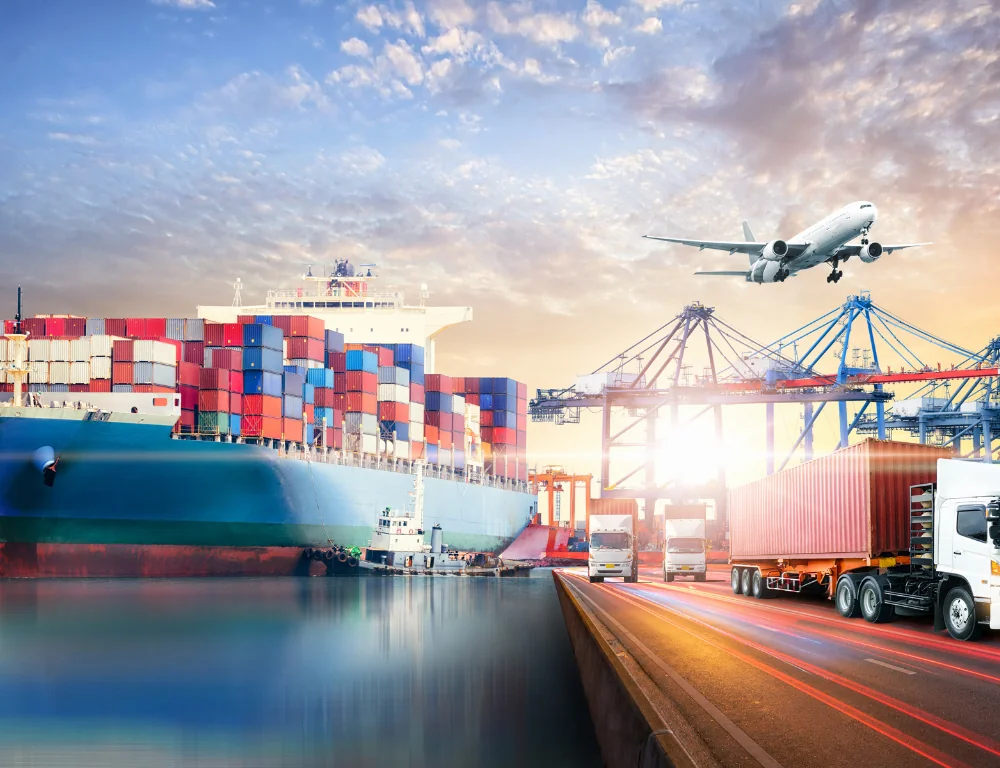
The freight industry is a complex network of transportation methods, logistics providers, manufacturers, retailers, and customers. Its main focus is efficiently moving goods from its production sites to their needed destinations across local, regional, and global markets.
Every link in this chain is crucial, from cargo ships carrying giant containers to busy warehouses and distribution centers. Trucks, trains, airplanes, and ships transport goods across different distances, each mode chosen based on the cargo’s specific needs.
What is a Freight Recession?
A freight recession is a sign of problems in the world economy. It means that people are spending less money, factories are making less, and trade is slowing down. The industry needs to be aware of this because it can affect businesses, jobs, and the economy as a whole.
The freight recession has impacted many companies since last year. During the pandemic, many new trucks and fleets entered the freight industry to meet the sudden increase in demand. However, over the last years, those needs have decreased significantly, leaving the industry with an influx of trucks, leading to overcapacity.
Potential Triggers of a Freight Recession:
– Global Economic Slowdown: When the global economy is unstable, it can make it harder for people and businesses to buy and sell goods. In return, this means there is less need for shipping and transportation. Various factors can contribute to global economic factors, such as weak consumer confidence, stricter monetary policies, or global tensions. This can be a possible cause for a freight recession.
– Overcapacity: When there are too many trucks and ships available to transport goods, problems can result. Companies might see a decline in freight volumes and reduced rates because there aren’t enough goods to transport, which means that some of their trucks or ships are not being used efficiently.
– Slow Retail Sales and Factory Demand: Retail sales and decreased factory demand affect the freight industry. Trucking companies may face issues finding enough items to transport, which means more truckers will compete for a limited number of jobs, which could lower prices.
Challenges Facing the Freight Industry Today
The freight industry is subject to many challenges in today’s fast-paced economy:
– Supply Chain Disruptions: The lockdowns, factory closures, and restrictions on movement caused by the COVID-19 pandemic have severely disrupted the global supply chain.
– Increasing Costs: Freight companies face increasing costs such as fuel, labor, insurance, and meeting regulations. These higher expenses are squeezing their profits, so they need to find ways to run more efficiently. As per Tank Transport, 31,278 trucking companies have shut down or altered their services due to rising fuel costs.
– Last-Mile Delivery Challenges: With the popularity of online shopping, more packages need to be delivered to people’s homes. However, logistical challenges such as congestion, urbanization, and customer expectations for fast and convenient delivery can make this tricky. Companies have to figure out how to keep their customers satisfied.
– Workforce Management: The freight industry faces challenges in recruiting and retaining skilled workers such as truck drivers, warehouse staff, and logistics professionals. Age demographics, changing work preferences, and competition from other sectors also create challenges.

A Dive into The Current Landscape of The Freight Industry
Shifts in Demand, Supply, and Pricing:
The freight industry’s shifting landscape and external influences have changed the dynamics of demand, supply, and pricing. From the demand perspective, the amount and types of items being shipped are changing because of consumer behavior, market trends, and new rules.
From the supply perspective, capacity limitations, a lack of workers, and infrastructure constraints impact the ability to meet increasing demands while ensuring cost-effective and reliable transportation services.
Lastly, the freight industry has encountered instability regarding pricing because of supply and demand imbalances, fluctuations in fuel prices, and changing shipping rules.

Implications of a Freight Recession
The business Impact of a Freight Recession: As demand for transportation services decreases, companies that depend on streamlined logistics and supply chains may have trouble sourcing raw materials, completing orders, and delivering goods to the market. This decrease can lead to a surplus in inventory, higher warehouse expenses, and supply chain issues. Additionally, businesses that operate overseas may have a harder time selling their products.
The Employment Impact of a Freight Recession: A freight recession can severely impact industries that rely heavily on freight transportation, including trucking, shipping, and logistics. For example, if there is a trucking recession, many truck drivers may lose their jobs as companies adapt to decreased demand and cost constraints. Shipping giant Maersk recently laid off 10,000 employees due to a decrease in cargo volumes.
The Environmental Impact of Freight Recession: A freight recession can help reduce pollution. However, it can also have a negative impact on the environment. When the economy slows down, people may not want to invest in clean energy or infrastructure improvements. This can make it harder to reach environmental goals. Additionally, a freight recession can bring changes in consumer behavior, such as decreased demand for sustainable products. This can make it harder to promote corporate responsibility and protect the environment.
Looking Ahead:
Although the future of the freight industry may be challenging, it is important to look ahead and anticipate future trends within the freight industry. Here are some predictions and goals for the future:
Short-Term Goals:
– Managing Impacts: Companies may focus on improving supply chain management and enhancing logistics to ensure smooth and efficient operations. Companies may also implement measures to reduce costs without compromising the quality of service. Reducing costs can mean renegotiating contracts and optimizing fuel consumption.
– Maintaining Customer Satisfaction: With a trucking recession, companies may focus on strategies to strengthen customer relationships. By streamlining processes, they can ensure efficient and reliable service and maintain competitive offers.
– Diversifying Services: Companies can diversify their services by exploring new routes and identifying untapped markets or regions to attract new customers and generate more revenue streams. They can also adapt to the freight industry’s shifting patterns and provide added services such as warehousing, distribution, and inventory management.
Long-Term Goals:
– Technology and Innovation: The freight industry can adopt innovative technologies such as advanced logistics systems, automation and digitization, and exploring alternative fuel options. Companies implementing artificial intelligence can optimize supply chain operations.
– Promoting Sustainability: Companies can continue to invest in clean energy, green technologies, and infrastructure upgrades.
– Building Resilience: Companies can maintain financial stability and develop contingency plans to navigate future recessions better.
The freight industry is currently experiencing a downcycle. The imbalance of supply and demand remains a problem that can cause many to exit the market or issue mass layoffs. However, there is hope for the future. Long-term trends and new opportunities and challenges will continue to shape the industry. Companies must be ready to handle these risks and maintain a safe plan to keep things running smoothly.
FreightCenter is always here to help you navigate turbulent times; call us now or get a quote.



